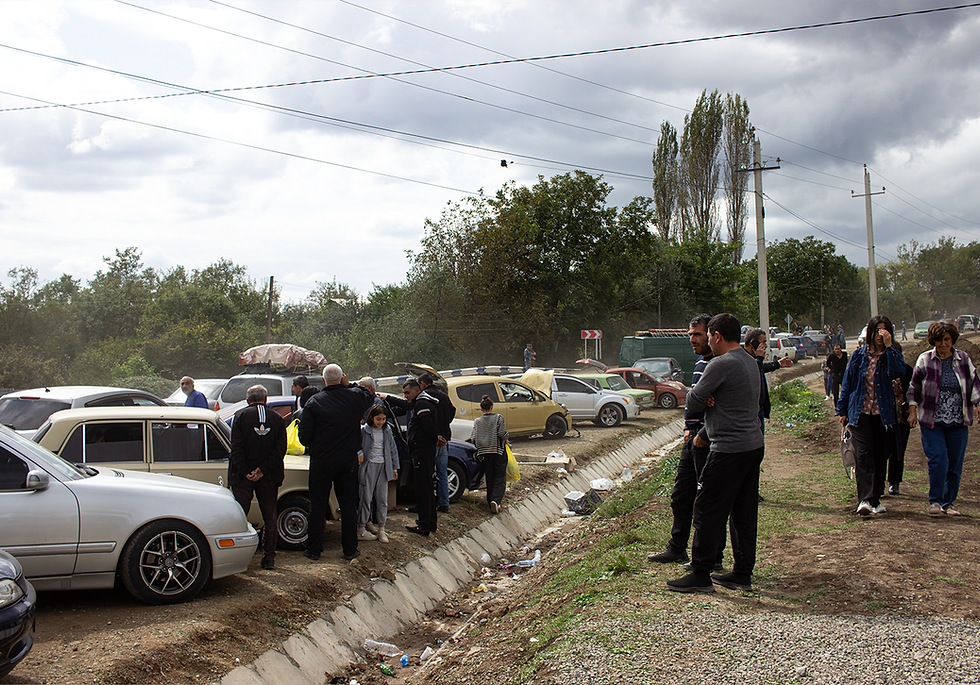Aliyev Threatens New War: Armenia Pressured to Change Its Constitution
- The Armenian Report Team
- 2 days ago
- 3 min read

Azerbaijan’s President Ilham Aliyev has once again threatened Armenia with war. This time, he says another military confrontation will happen unless Armenia changes its Constitution — a demand strongly opposed by many Armenians and seen as yet another tool to pressure Yerevan into submission.
Speaking at an international forum in Baku, Aliyev warned that Armenia must fully reject what he claims are “territorial claims” against Azerbaijan, or else face the risk of renewed fighting. He says these so-called claims are in Armenia’s Constitution, specifically in a reference to its 1990 Declaration of Independence, which itself mentions a 1989 unification act between Soviet Armenia and Nagorno-Karabakh.
But Armenian leaders have clearly stated that this part of the Constitution is not a territorial claim. In fact, the draft peace treaty between Armenia and Azerbaijan already includes mutual recognition of each other’s territorial integrity. That means neither side is supposed to use its internal laws — like a Constitution — to justify ignoring the treaty’s terms.
So, why is Aliyev insisting on this change?
A Pretext for More Concessions?

Many Armenian analysts and opposition leaders believe Aliyev’s demand is not about legal language, but rather a tactic. It’s about forcing more and more concessions out of Armenia, step by step.
Just last month, Yerevan already made several painful compromises to help finalize the draft peace treaty. But instead of moving forward, Aliyev has now raised the stakes again — this time tying peace to a major constitutional change, something that cannot happen before 2026 at the earliest.
Prime Minister Nikol Pashinyan has said he will try to introduce a new Constitution through a public vote, but experts point out that even this might not be enough. Critics of the government say Baku wants more — including a so-called “land corridor” through southern Armenia to connect Azerbaijan with its exclave of Nakhijevan.
Aliyev has threatened to take that corridor by force if Armenia doesn’t agree. That threat became more serious earlier this year, when Aliyev said military action was on the table.
Rising Tensions on the Border

Since the two countries finalized the draft peace treaty just weeks ago, the situation on the ground has gotten worse, not better.
Azerbaijan has begun accusing Armenia of breaking the ceasefire almost every day. Armenian officials deny these accusations. But residents in two Armenian border villages say that Azerbaijani troops have been firing weapons at night — mostly into the air — for over two weeks straight. The Armenian Report’s Ani Khachatryan traveled to these villages to confirm for our readers. You can watch our reports from Syunik here.
These actions seem designed to create fear and tension. Some fear it’s also meant to justify future military moves, especially if the peace deal stalls.
Pundits warn that Azerbaijan’s daily accusations and border provocations could be used to either launch a new attack or increase pressure on Prime Minister Pashinyan to give in to more demands — even if those demands go beyond the peace treaty itself.
Peace Treaty or Power Play?
Aliyev’s insistence on changing Armenia’s Constitution is being viewed by many as a political trap. It’s not just about peace. It’s about power — and control.
By forcing Armenia to change the very document that defines its independence and identity, Aliyev is trying to erase the history and rights of the Armenian people, especially when it comes to Nagorno-Karabakh. The reference in the Constitution is symbolic for many Armenians. It reflects a deep connection to its indigenous land and to a past of injustice and survival.
Changing it under pressure would not just be a legal move — it would be a deep moral and national compromise.
The Bigger Picture

For years, Armenia has shown willingness to talk peace, even after the devastating 2020 war and the forced exodus of over 120,000 Armenians from Artsakh in 2023.
But peace requires respect, not threats.
Instead of honoring Armenia’s efforts to negotiate, Azerbaijan continues to escalate the situation with fresh demands, military threats, and propaganda. Instead of showing goodwill, Aliyev keeps setting impossible conditions.
What we are witnessing is not a genuine peace process. It’s an ultimatum dressed up as diplomacy.
The world must recognize this pressure campaign for what it is — and stand against it.
Because lasting peace cannot be built on threats, force, or fear.
It must be built on mutual respect, honesty, and above all, justice. And justice means not rewriting a nation’s identity under the shadow of war.



Comments